These definitions may vary from those used by others. My definitions do not presume to be correctonly to be consistent within the framework of my ideas about playwriting.
ACTION: What a character wants; it is itself invisible and inaudible; we learn the nature of the action through the consequent speech and behavior of the characters.
BEAT: The basic building block of a scene and therefore of any play; a beat is the smallest unit of dramatic structure that contains action, conflict, and an event.
BEHAVIOR: A characters gestures and movement; ideally, behavior results from the characters action just as his or her language does.
CONFLICT: Whatever prevents a character from getting what he or she wants; do not confuse conflict with a state of emotion or with an argument.
CONVENTION: The accepted rules by which a drama is constructed; different plays will have different conventions, but each plays conventions should be internally consistent.
DRAMATIC SITUATION: A way to refer to the ideas of action and conflict as one concept.
DEUS EX MACHINA (DA-

s-eks-M-ki-n

): Literally god from a machine, this now refers to any kind of ending that does not seem organic to the play; a false event, not a consequence of action and conflict; pejorative.
DIRECT ADDRESS: When a character addresses the audience directly, breaking the fourth wall. (See monologue and soliloquy.)
EVENT: The moment when a character either gets what he or she wants, or definitively does not get it; there are normally many smaller events in a play (see beats), but the main event serves to end the play; a genuine dramatic event is the result of action and conflict (see deus ex machina ); an event may take many different forms, but is always some sort of change.
EXPOSITION: Literally the act of presenting to view, but generally used in playwriting to mean information and more particularly used pejoratively to mean that information which is not justified by the action; in reality, every word in a play is exposition, whether it is activated or not.
EXTERNAL CONFLICT: Conflict that exists between two or more characters. It can further be divided into direct external conflict (that which occurs directly between two characters who want to possess or control the same object) or indirect external conflict (that which also occursbetween two characters, but while action of the first character is directed toward the second, the action of the second is directed elsewhere).
IMPULSE: Whatever makes one want to write a play; it may take many different forms, but is usually some sort of experience, whether first person or not.
IN MEDIAS RES (in-ME-d

-

s-R

S): Literally in the middle of things, it is the point in the story that the Roman poet Horace recommends a playwright begin his or her play; a relative term that must be applied according to ones own instincts.
INTERNAL CONFLICT: Two actions within oneself which give rise to a conflict; sometimes referred to as a characters ambivalence, it is generally easier to think of it in structural terms.
MONOLOGUE: Any extended speech within a play; monologue and speech are often used interchangeably; a monologue may be (but is not necessarily) direct address. MOTIVATION: The underlying reason for a characters action; often mistakenly used interchangeably with action. (See subtext)
PRAXIS: The ancient Greek word used by Aristotle to refer to dramatic action; also used to mean the main or central action of a play, as opposed to the many smaller, more immediate actions.
SOLILOQUY: A conversation with ones self; often confused with direct address or monologue, a true soliloquy is rare.
STAKES: What a character has to gain or to lose; often confused with high (or low) emotions, it is in fact a function of conflict and/or action.
SUBTEXT: When a character seems to have one action or motivation, but in fact has another; subtext lies under the text, not spoken directly, but nevertheless apparent.
TOOLS: A way to think of all the structural ideas in this book; a more constructive and less restrictive term than rules.
UR-PLAY: The ultimately unknowable play that is buried deep in your own subconscious; your actual play, as written, will bear as close a resemblance to the ur-play as possible.
THE TOOLS were about to discuss provide you with the means to begin writing your play. Even the expert use of these tools will not solve all your writing problems, but they can offer you a sense of craft. Then you can apply that craft to begin the infinitely more difficult job of actually saying what youre trying to say.
Its important to remember as youre reading and working on the exercises in Part One that these ideas really are tools, not rules. There may be the laws of drama I mentioned in the Introduction, but youre better off not thinking of them as that.
Many great plays do not use the tools Im presenting here, or if so, they use them in such idiosyncratic fashion that they are almost impossible to identify. For example, one is hard pressed to find a clear action for Lear in King Lear. Even if one does find action and conflict in Waiting for Godot, anevent for the play is very elusive. In fact, thats the point of Becketts playthat there is no event. The contemporary work of playwrights such as Richard Foreman and Robert Wilson also lack any of my tools, yet many peoplemyself includedfind their work fascinating and rewarding.
An audience goes to the theater to be entertained, informed, excited, provoked. People go because they are interested in your play, for whatever reason and on whatever level that may be. And your job is to keep them interested. If you have done that, then you have accomplished your task, no matter how little you may have used the tools I will tell you about.

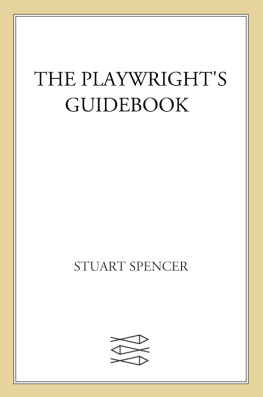
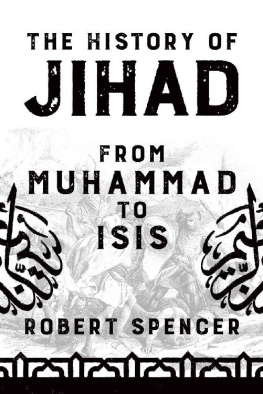
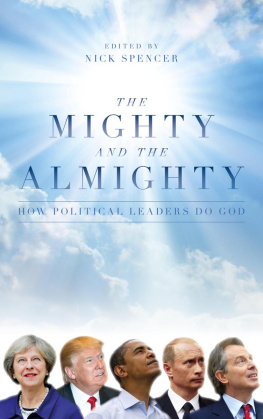
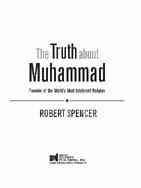
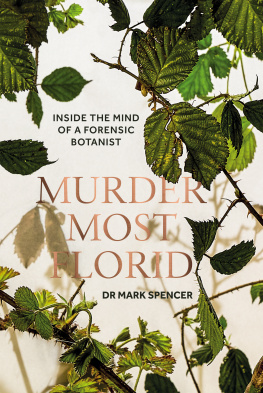
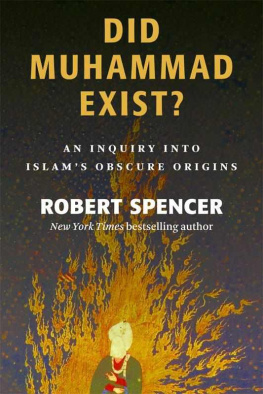

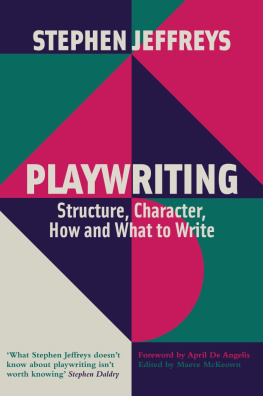
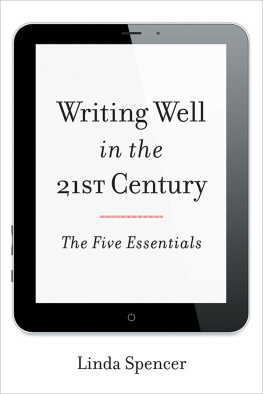
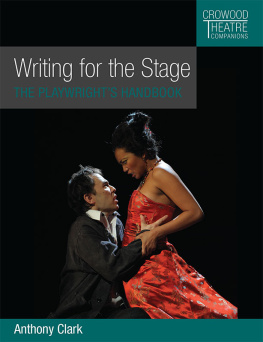
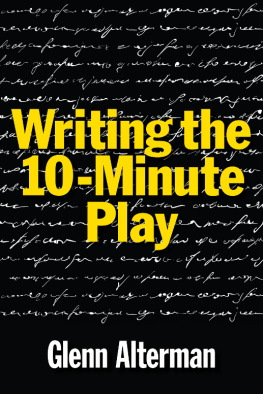
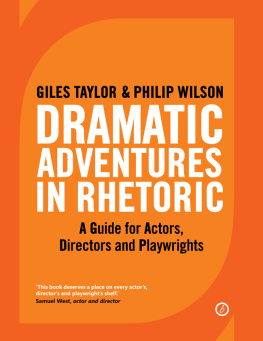
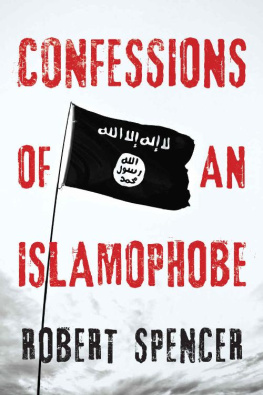
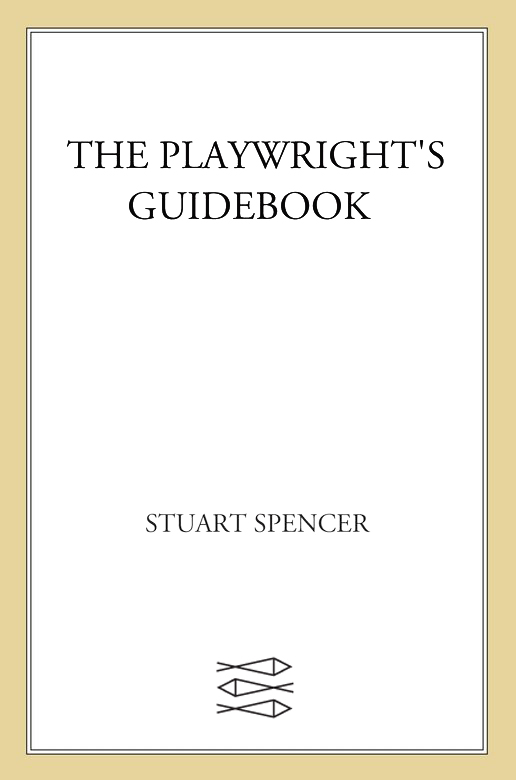
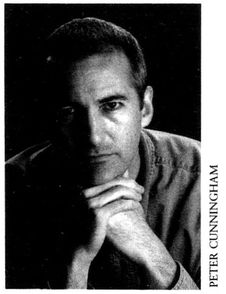
 s-eks-M-ki-n
s-eks-M-ki-n  -
-  S): Literally in the middle of things, it is the point in the story that the Roman poet Horace recommends a playwright begin his or her play; a relative term that must be applied according to ones own instincts.
S): Literally in the middle of things, it is the point in the story that the Roman poet Horace recommends a playwright begin his or her play; a relative term that must be applied according to ones own instincts.